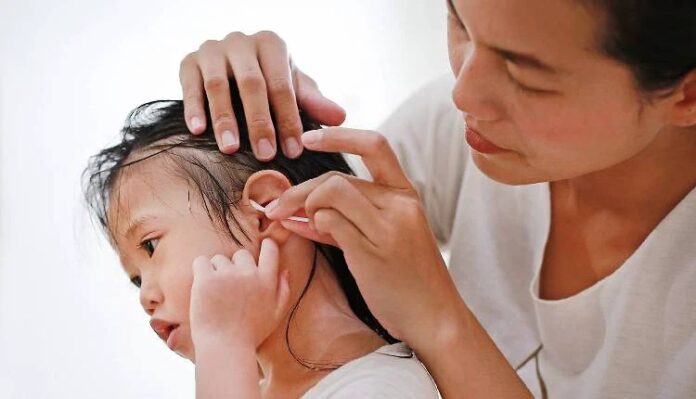A common problem that many people eventually develop is cerumen impaction or excessive ear wax. A hearing specialist or doctor should perform wax removal because it is a delicate procedure.
Many people attempt DIY solutions for excess earwax, including ear candling, ear swabs, and over-the-counter ear cleaners, because it can be so uncomfortable. In this article, we’ll look at some tips for cleaning your ears as well as the best and simple way to clean your ears.
Things to remember while cleaning your ears:
Cotton Swabs are preferable for cleaning the exterior of the ears
Although they are common in bathrooms, cotton swabs shouldn’t be used in the ears. Cotton swabs are typically recommended for cleaning the outer surfaces of ears; in fact, most packaging expressly states as much. The rigid, pointy shape of a cotton swab can harm the skin, eardrums, as well as ossicles. Cleaning anything inside your ears with cotton swabs may also result in an infestation. Impaction could be a result of using swabs as well. Impaction occurs when there is excess earwax, which results in symptoms of the ears (such as hearing problems) or obstructs a doctor from diagnosing a patient’s condition when they are having their ears examined.
Candling can be harmful in a few different ways
Ear candling is performed by inserting an empty, cone-shaped candle further into the ear. According to myth, the heat from the flame induces a vacuum effect that draws wax to the candle. However, ear candling may cause more harm than good, leaving you with significantly affected earwax while also damaging your ear canal and eardrum. Despite some anecdotal reports of candling success, some doctors have stated that they have seen eardrum perforations as well as burns from people’s hair catching on fire, which is why they believe it to be a risky practice.
Wax Removal Should Really be Done With Caution
Ear irrigation, also known as the act of rinsing out your ears, is a method for removing earwax. This technique involves spraying body-temperature water into your ear while sitting upright, then tilting your head to let it drain out. Also, keep in mind that you should refrain from washing out your ears if you think you may have an eardrum hole or if you recently had ear surgery. Before attempting to carry out ear irrigation on your own, it is best to visit a healthcare professional.
Here’s the best way to clean your ears at home by yourself:
One of the best methods for cleaning your ears is to let the wax come to the outer ear on its own and start to come loose. After that, use a washcloth to gently scrub it clean. With the help of mineral, baby, or even plain old water, you might be able to loosen the wax in your ears. If you are confident that your ears are almost always healthy and that you have no cuts in or near the eardrum, you can also try over-the-counter wax softeners. The majority of wax-softening products use drops or an oily solution to soften the wax and aid in its migration to the outer ear.
You can also use the following method in between appointments with a healthcare provider: Use a few drops of mineral oil in each ear while tilting your head to the side. Mineral oil is preferred over baby oil because it is inert and free of fragrances that may cause an allergic reaction in people with sensitive skin. The wax ought to come out after you give it some time by placing your head on a pillow covered in a towel. However, because this technique can be risky for some people, it is still best to use it in the presence of a healthcare professional.
Earwax is something you should leave alone if at all possible. Since ears naturally clean themselves, unless your earwax production has increased, you may never be required to clean your ears or only do so occasionally. But if you choose to clean your ears, do it gently. You should refrain from using cotton swabs, sharp pointed objects, and candling because doing so can cause earwax to get stuck in your ears. If you decide to rinse your ears or have a healthcare professional do it for you, you should exercise caution, especially if earwax impairs your hearing or causes discomfort in your ears.


